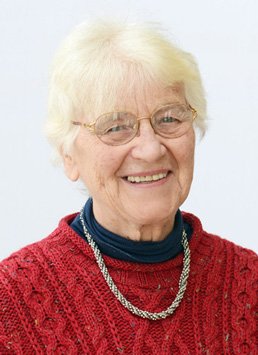Society for the Study of Women Philosophers, Inc.
a non-profit, tax-exempt educational charity 501(c)3 Internal Revenue Code
Early Pythagoreans:
Theano I, Damo, Arignote, Myia, Melissa
|
Kate Lindemann's Women Philosophers pages |
 |
Remember!! Your purchase of books by clicking on Abe Books or Amazon links through this site earns us a small commission that is used to provide travel scholarships. |
Early Pythagoreans: Women Philosophers: Arignote, Damo, Myia, Theano I, Melissa
If we list these Early Pythagoreans in historical order, we would have:
- Theano - wife of Pythagoras. We refer to her as Theano I because there is a later, neo-Pythagorean philosopher by the same name (whom we refer to as Theano II.)
- Damo - daughter of Theano I and Pythagoras
- Arignote - daughter of Theano I and Pythagoras
- Myia - daughter of Theano I and Pythagoras
- Melissa Philosopher Mathematician
Before continuing, we should review some of what we know about Pythagoras and his school. Although much as been written about Pythagoras and his doctrine, there is little of which we can be certain about this philosopher or his followers. W. K. C. Guthrie says in his, History of Greek Philosophy: "The history of Phytagoreanism is perhaps the most controversial subject in all Greek Philosophy". The subject is not only obscure but complex. [Guthrie, p. 146.]
It is clear that the Early Pythagoreans formed a community and that unlike the Milesians, their motive for philosophy was not just curiosity about the origin of things. For the Pythagoreans, philosophy is the search for "a way of life, whereby a right relationship might be established between the philosopher and the universe." [Guthrie, p. 148]
Pythagoras was not only a philosopher. He was a political and religious leader also. And in accord with ancient custom, there was a tendency to attribute to the leader, all sorts of ideas and work formulated by other members of the group to him as its leader. As a result it is sometimes difficult to separate out what was truly a contribution of Pythagoras, himself, and what was created by some other Early Pythagoreans.
W.K.C.Guthrie offers analysis of some of the problems and difficulties for scholarship: some claims about Pythagorean doctrine and life are not true and some are really repetitions of satiric exaggerations of Pythagorean doctrines and not the doctrines themselves.
In writing about this ancient community, we sometimes find ourselves in a situation akin a group of scholars in the year 2600 finding scripts that contain both TV's Saturday Night Live and sayings of political figures from CNN but not knowing which is which. It is difficult to determine which statements are satiric exaggerations and which are true. Far too many scholars [and web sites] accept every reference to Pythagoras and Pythagorean doctrine as representing the exact beliefs of these philosophers but scholarship does not always support these claims - especially in regard to the Early Pythagoreans.
It appears the Pythagoras was born on Samos and that his father was a gem cutter. Isocrates says that he traveled to Egypt and it is believe he traveled to Babylon also. Elisha S. Loomis in his The Pythagorean Proposition states that Pythagoras left Samos and came to Crotona/Kroton in 510 BCE. and he captivated the city by his speech.
He states:
"Pythagoras
spoke captivatingly, and it is for this reason not to be wondered at
that his orations brought about a change in the morals of Kroton's
inhabitants; crowds of listeners streamed to him. Besides the youth who
listened all day long ot his teaching some 600 of the worthiest men of
the city, matrons and maidens, came together at his evening
entertainments; among them was the young, gifted and beautiful Theana,
who thought it happiness to become the wife of the 60 year old teacher."
[E.S. Loomis, p. 10]
It is this Theana/Theano, who is named as among the Early Pythagoreans? It appears to be so. She was a scholar in her own right as well as the wife of the philosopher. She bore three girls, Arignote, Damo and Myia, who are also listed among the Early Pythagoreans and two boys, Mnesarchus and Telauges. After Pythagoras's death, Theano, who was much younger than her husband, and her daughters continued the school.
Some would say that it was the work of these Early Pythagorean women that perpetuated Pythagoreanism in the ancient world. So these women who were Early Pythagoreans were very important to our knowledge of the community and its doctrines.
What is of enormous interest for the history of philosophy is that we have many more extant texts by Early Pythagorean Women that we do men. Reviewing the entries in Kathleen Freeman's Ancilla to the PreSocratic Philosophers, which is a translation of Fragments in Diels, Fragmente der Vorsokratiker one is struck by the number of names of Pythagorean philosophers [all males] AND the comment after each that there is no known text.
But scholarship has found a number of texts by Early Pythagorean women.
AHistory of Women Philosophers Volume I: 600BC - 500AD of the four volume series edited by Mary Ellen Waithe, offers numerous short texts by the early Pythagorean women.
[ Naturally, I shall not quote extensively from those texts here. Interested parties should buy the book or request it from their local, college or university library. I do offer a few 'snippets' and links to pages that cites more material.]
Arignote
Arignote
is said to have written one of the "sacred discourses". In her chapter
on the early Pythagorean women Waithe cites Peter Gorman's Pythagoras, A Life and gives the quotation he attributes to Arignote:
"... the eternal essence of number is the most providential cause of the whole heaven, earth and the region in between. . ." [Waithe p. 12]
Society for the Study of Women Philosophers